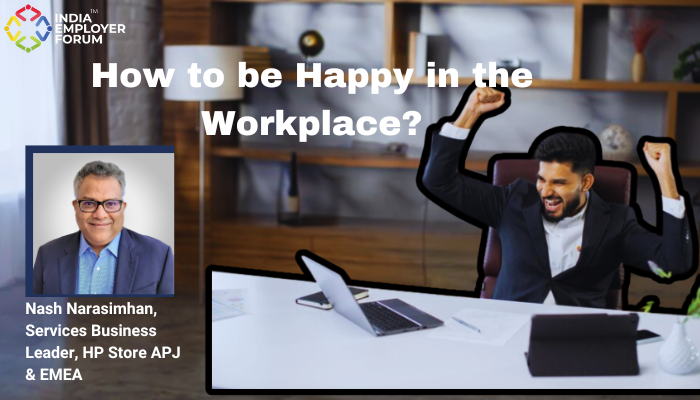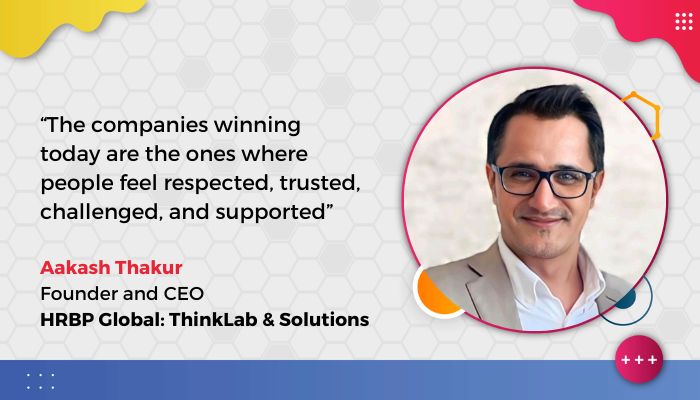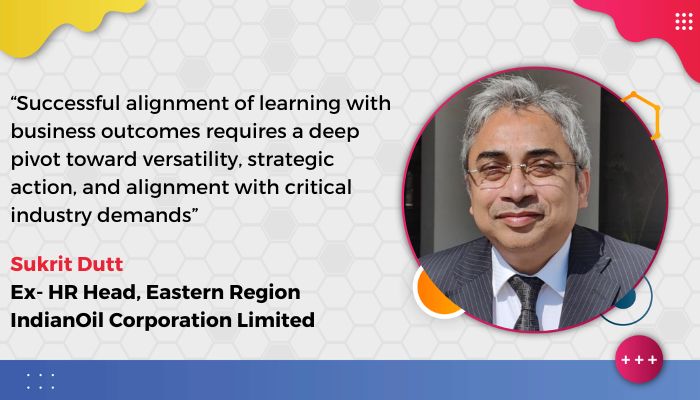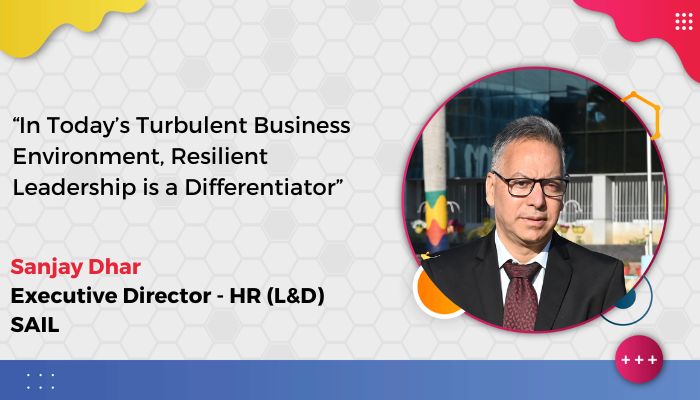Being happy is a very inward assessment of one’s work and status in life.
If you notice, this article is not about how to be “successful” in the workplace, it’s about being “Happy” in the workplace. Why am I writing about workplace happiness rather than success? It’s about getting one’s priorities right. It’s not just in the dictionary, but also in real life, happiness precedes success. Being successful is a very outward perception of what others feel about one’s career. Being happy is a very inward assessment of one’s work and status in life. Also, success seems like a destination, like achieving a position of power or prestige (like CEO, MD, VP, Director, Manager etc). However, happiness is not a destination, but a journey. We often hear stories of successful people, who have prioritised success over happiness and later regretted the cost they paid in terms of poor health, lack of happiness, broken relationships, hobbies which they gave up etc. But you seldom hear happy people complain or express regret about anything. If you need to make a trade-off choose happiness over success. Why do I say this?
A sense of well-being is like a radar chart (see pic). You need good health, happiness in the work you do, adequate finances to cover any losses, a strong family and friends circle, the ability to care for less privileged people and then a stable and growing career with increased responsibilities. The idea is to maximize the area in the centre. On a scale of 10, one must aim to get at least 6 in each of these boxes, else it’s sub-optimal for the well-being of the individual. Being a successful executive is great, but do you want to be in a situation, where your health is poor, where you don’t find time to exercise, do your hobbies, give back to society, and have a poor family and friends circle? That’s the reason in the Gig economy, many highly qualified people work for 2 years and then take a travel break for 6 months to see the world, then rejoin work etc. Because, as some wise guy said, money can be earned later, but can I get the lost time and energy of my youth, when I am older?
Now that we have understood the importance of happiness over success, it does not mean one has to be sloppy at work, have ambition or hunger for growth in one’s career, nor aim for a better salary etc. If you prioritize happiness and follow some of these tips, you might ALSO achieve success.
Here are my top tips for a happy career:
1. Do not compare your journey with anyone else
No two people (even identical twins) have the same journey in their lives. The background, family, value systems, challenges, and opportunities are all quite different. For someone, Tim Cook (CEO of Apple) or Sundar Pichai (CEO of Google) or Satya Nadella (CEO of Microsoft) may look like a success. But for many others, being in the Army and serving the country as a soldier, being a green activist planting a million trees or being a teacher shaping the life of a thousand children could be more worthwhile achievements. The only comparison is to compare yourself to the person from yesterday. Are you better? 30 years back, I managed a sales job in Madhya Pradesh, a state in India as my territory. Now I’m in a Global job with far more things at stake. and progressively I have taken on bigger challenges. That is enough progress for me, even though I am not Sundar Pichai 🙂 Then it’s fine.
2. A satisfied life might be better than a successful life
Personal satisfaction is the most important ingredient of success and without this success is nothing. Make sure you remember to be happy and satisfied with your life even if you get little success. why? A satisfied life is better than a successful life. Because our success is measured by others, but our satisfaction is measured by our soul, mind and heart. When I look back, the roles which brought me a lot of joy (like serving customers directly in E-commerce) might not be the biggest job in the company. it might not be viewed as a BIG or successful job, but gave great satisfaction. The same applies to pay cuts and demotions. I once knew of a global SVP of Channels in an MNC, who came back to his home country as New Zealand MD, which was 3 levels down. But he was perfectly happy reporting to his juniors in the same company. Maybe his focus was Satisfaction. Of course, he did a great job as NZ MD.
3. Go after your Passion. Learn first, earn next
I always wanted to have a career in the computer industry. However, as luck would have it, I spent the first five years of my career in the automobile industry. Finally, I got my break in the IT industry as a product manager. I was quite nervous initially, to jump into an industry, which I did not know well. But the sheer passion for my job, made me overcome many challenges to become one of the best in business. Passion combined with patience makes one unstoppable. Life is too short to live someone else’s dream. DO WHAT YOU ENJOY EVERY DAY, EVEN IF IT PAYS LESS. Also early in one’s career, it’s good to go through the grind and learning – and not focus so much on the rewards. I did some of the most difficult jobs – like being the sales manager in a remote Madhya Pradesh state of India, product manager for a challenger brand, setting up a new online store/ call centre, doing a pricing strategy job for the region, being the integration/ clean room lead in a mega-merger etc. These roles did not pay me well, but gave me invaluable learning experience in managing things, with minimal guidance very well. Rewards came much later.
4. LCE Tripod and Career Comb (See Pics)
A good career is a succession of increasingly challenging roles. A good role is a tripod balanced on three legs – where you can learn, contribute and enjoy all at the same time. If one of them is missing, time to look for a role change. Many a time, we get quite comfortable with our jobs, typically after 3 years – it’s not challenging enough anymore. Either you stop learning, are not contributing enough or you feel bored. This is the time to seek a change in role. Not all of us are lucky to get a new role ASAP, so it’s good to plan, maybe a year in advance, with your manager. TO REMAIN STATIC IS TO LOSE GROUND, SAID HP FOUNDER DAVE PACKARD. It’s true in your career too. Also endeavour to build a comb-shaped career, which has both depth (expert in a few areas) and width (Versatile).


5. Actions speak louder than words
There is no substitute for old-fashioned hard work and performance even in the new world. Many a time, people even with Ivy-league education are passed over by people who deliver better results. Being proactive, coupled with good planning, excellent teamwork and execution deliver great performance. When you deliver results, people sit up and take notice, whether you speak well or not. A colleague once said ONE CAN NEVER LOOK GOOD WITH BAD NUMBERS. NOR CAN LOOK BAD WITH GOOD NUMBERS.
6. Enjoy the VUCA, focus externally, be curious and constantly learn
The real world and the external market are full of VUCA – Volatility, Uncertainty, Complexity and Ambiguity. Competitors become part of your company after a merger. Collaborators become competitors with a technology change. Organizational and leadership change is perpetual. Yesterday’s heroes & worldviews are irrelevant today and in future. No point losing your sleep on this. One must learn to embrace change and execute amidst ambiguity and chaos. Keep the focus external. Deliver customers even better service when things are ambiguous. This ensures you, your team and your company stay relevant in the marketplace. Also, you need to adapt to change and keep upgrading your skill set. Being curious and constantly learning will always give you happiness and success.
7. Work for a good manager & on great teams with big goals
This might be the most important factor in job satisfaction. A good manager is NOT someone who is always sweet and flowery. A good manager must be someone who one can respect professionally, is kind-hearted, takes one under his/her wings, encourages one to develop your strengths and minimise one’s weaknesses, pushes you to deliver higher levels of performance, and is one’s biggest supporter in good and bad times. If you get one like the above, you will of course deliver the best performance.
Also, work for teams with big goals. Ancient Tamil Poet, Thiruvalluar, said 2000 years back in his KURAL book, it’s better to hold the Spear which missed an Elephant, rather than an arrow which killed a Rabbit. Meaning – Aiming high and even failing is OK, but low aim is the worst thing, which can happen to a high-performing team. Great teams, put service above self, leverage diversity as a strength, trust, and care for each other, and have a strong work ethic. But most importantly, they work towards an audaciously BIG COMMON GOAL. One was privileged to be a part of great teams, which delivered record revenue growth with record profits, both in the product and services business. These business goals looked impossible at some point in time. A powerful goal for a talented team produces magic.
8. Being Nice gives you good Karma, and it is good for your career
Dave Packard once said, “Build a company to contribute to society, not to make a fortune”. That is BE GOOD. The same applies to your career too. Which colleague do you remember after many years – the Ivy League expert who came up with a new strategy OR the nice guy who helped you when it mattered? When you look back at life, people remember your small acts of kindness better than your profound ideas. After many years in the hardware business, I got to know about a new job in services. This happened over a cup of coffee; chatting with an old colleague, whom I met after many years. Being nice helped me personally. Professionally too, being nice every day is the fastest way to get work done in a large company. As the saying goes, IT’S NICE TO BE IMPORTANT, BUT IT’S MORE IMPORTANT TO BE NICE. Do good, be good. Karma catches up. I have seen powerful VPs, tyrannical in nature, lose their roles. On the contrary, most junior employees do a consistently good job and become an MD OR VP over time. Also, if you mentor or teach younger colleagues how to do a job, it pays back in many ways.
9. Never let a job dictate your life outlook. Have an attitude of gratitude.
A bad quarter in sales usually ruins our work life. But you can still ride a motorbike, talk to your friends or relatives, do painting or poetry, pet a dog, and play the guitar. These things give joy, independent of sales achievements or work life. Also, be grateful. The legendary Wimbledon champion, Arthur Ashe, was dying of AIDS, which he got due to Infected Blood he received during a Heart Surgery in 1983. During his illness, he received letters from his fans, one of which conveyed, “Why did God have to select you for such a bad disease?”. To this Arthur Ashe replied, “50 Million children started playing Tennis and only 50 reached Wimbledon, and only one person won”. When I was holding the cup in my hand, I never asked God “Why Me?” So now that I am in pain, how can I ask God “Why Me?” One tends to forget so many good things which happen to us, when one faces difficulties in career and life. That is when one must count the blessings. if you are reading this and able to reflect, you are better than millions of people who can’t read or worse even think. Having an attitude of gratitude determines your altitude.
10. Life beyond work is key
This might sound counterintuitive. I achieved many things incredibly early in my career. But I worked so hard without taking care of myself. I suffered a burnout. This is because, for me, there was no LIFE BEYOND WORK. Thankfully, I changed for the better. While work is a large part of our life, to have an illustrious career, we need a life beyond work. Amidst our hyper jobs, we need to take time to rest and renew. One can stay physically & mentally fit through Gym, Yoga and Meditation. Other great ways to recharge include riding a motorbike, playing a musical instrument, cooking, connecting with family and friends, travelling, watching movies, playing a game, listening to music, reading a book and social work. AND GIVING BACK BY WRITING (like this post). As the proverb goes “All work and no play makes Jack a dull boy”. We stay sharp, by remembering there is life beyond work.
About the Author
Nash is currently the Services Business Leader, HP Store APJ & EMEA, HP Inc. In this role, he is responsible for profitable revenue growth of Life cycle services (Consumer PS, Commercial PS, Print services) across APJ and EMEA stores. For 7 years till 2022, he was General Manager of India Market for E-Commerce and Digital GTM, HP Inc. As E-commerce head, Nash and his team were responsible for P&L (Revenue, GM, Opex) and TCE (Total Customer Experience) for HP Store – HP Inc. India’s own online business. It includes End-to-end management from Product Category, Pricing, Digital Marketing, and Sales via Web and Call Centres to Supply chain and Logistics. As Digital GTM lead, Nash and his team were responsible for building and maintaining the Omnichannel technology, analytics and marketing platforms for 600+ HP World Retail stores in 300+ cities.
In 2023, Nash was honoured with two prestigious awards. Distinguished alumni award, from his alma mater, BIM Business School, Trichy, India. And Global Top 200 Marketer award, from White Page International, a brand consultancy firm, based in London, UK. Nash completed his Mechanical Engineering from PSG Tech Coimbatore and his MBA from BIM Trichy as a rank student. He also completed executive programs from IIM-Bangalore, INSEAD Singapore and Indian School of Business, Hyderabad. He is a visiting professor for E-Commerce at BIM, Trichy. Nash is a Biker and Blogger. And has a passion for photography, reading and travel. More details at: https://www.linkedin.com/in/nashtupil/
Disclaimer: The opinions and views expressed in this article, including any accompanying data, are the sole responsibility of the author and should not be construed as reflecting the official policy or position of India Employer Forum.
You might also be interested to read: Women’s Safety at the Workplace is of Utmost Importance






